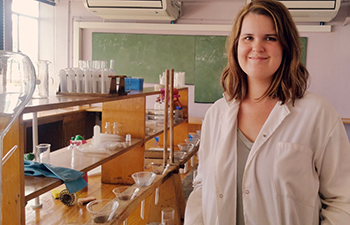Latest News Archive
Please select Category, Year, and then Month to display items
12 January 2024
|
Story Nonsindiswe Qwabe
|
Photo Sonia Small
 Since joining the UFS in 2008, Dr Grey Magaiza has worked extensively on approaches that can foster the socio-economic transformation of societies.
Since joining the UFS in 2008, Dr Grey Magaiza has worked extensively on approaches that can foster the socio-economic transformation of societies.
“The future should be one where communities can decide on their development agenda and futures. That’s the most important for me.” Dr Grey Magaiza, Deputy Director of the Centre for Gender and Africa Studies (CGAS) and Head of the Community Development programme on the Qwaqwa Campus, is passionate about capacitating communities to be agents of change and advancement. His vision for the future emphasises the empowerment of communities to take charge of their development by actively participating in decision making and the implementation of development projects that can improve their lives.
Since joining the UFS in 2008, Dr Magaiza has worked extensively on approaches that can foster the socio-economic transformation of societies. Over the years, he has crafted his research speciality into one that he is most proud of – being an interdisciplinary scientist immersed in the development of communities.
“I’m in a fortunate position of researching what I like. I say ‘fortunate’, because I’ve taken the time to understand what I’m passionate about, which is the overall field of rural livelihoods and livelihood futures – in short, community development. My research starts from an engaged university, understanding the elements that a university must use to enhance transformation and relevance to its immediate community in terms of development.”
One of the ways he has done this is by looking at social entrepreneurship as a development approach for young people in a rural setting. Through workshops with non-profit and civic organisations in Qwaqwa, Dr Magaiza has been helping these organisations to map out their needs and actively meet them through the involvement and support of external role players.
“We understand that communities are part of the national development agenda, but even that national agenda respects community knowledge and intentions and allows communities to shape their identity. A critical enabler of this is community organising. You bring back the capacity in communities to have dialogues on issues affecting them as spaces for engagement, knowledge exchange, and for people to just talk about their way forward.”
By enabling communities to define their development agenda, they can address their specific needs, challenges, and aspirations, he said. “When I look at livelihood futures, it’s quite an exciting aspect of my work – it’s like looking into a fortune tellers’ globe, because you’re not deciding for communities what they should do, but the communities themselves take those decisions.”
Postgraduate student to conduct research on maize quality at Michigan State University
2017-03-27

Schae-Lee Olckers, master’s student in the
Department of Microbial Biochemical and
Food Biotechnology.
Photo: Supplied
Schae-Lee Olckers, a master’s student in the Department of Microbial Biochemical and Food Biotechnology at the University of the Free State (UFS), will be travelling to the US in a few weeks’ time. For the next two years she will be doing research at the Michigan State University (MSU) at its Department of Food Science, working on wheat quality and its baking properties.
Increase the nutritional value of maize
The title of her master’s research project is: “The influence of low and optimal nitrogen conditions on the nutritional value of quality protein maize”. She is focusing on the influence of environmental conditions on the nutritional value of maize.
New hybrids of maize production developed
Olckers said: “I chose to start my research on this specific topic in my honours year because maize is the main staple crop in South Africa, as well as in the rest of Africa. Therefore, micronutrient malnutrition is a major concern for developing countries as well as for poor people who rely on it as a major food source. I found it interesting that these breeding programmes that are being developed for new hybrids of maize for production are focusing on increasing the nutritional value of maize and can therefore help eliminate micronutrient malnutrition in some populations of poor communities,” she said.
Prof Perry Ng will be her research supervisor. He is an affiliated professor at UFS in the division of Plant Breeding. “I am very excited about the opportunity to travel and to gain experience working with a well-known cereal scientist. The work he does is also closely associated with my research,” said Olckers.
Her supervisors at UFS are Profs Garry Osthoff and Maryke Labuschagne from the Departments of Microbial Biochemical and Food Biotechnology and Plant Sciences respectively.